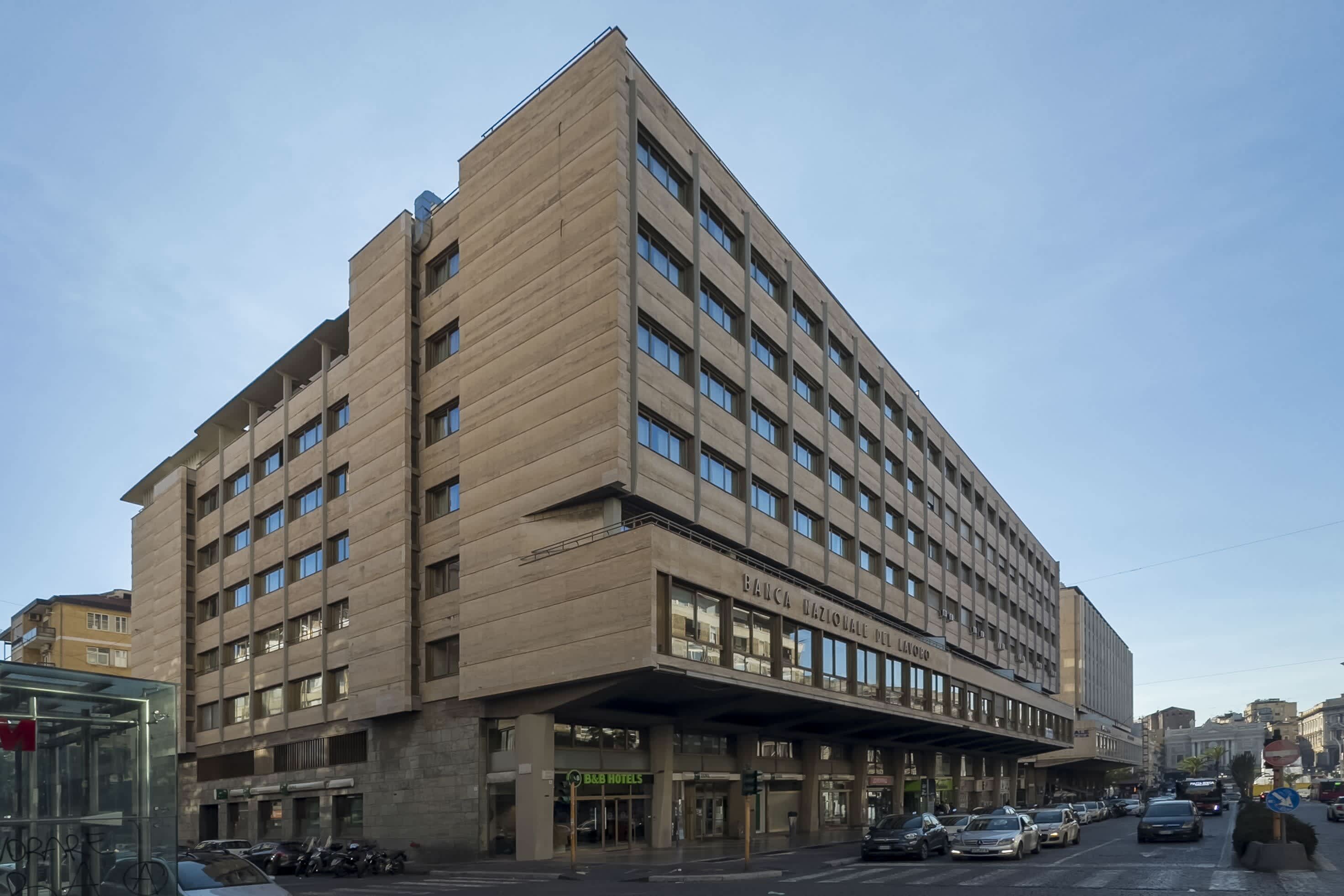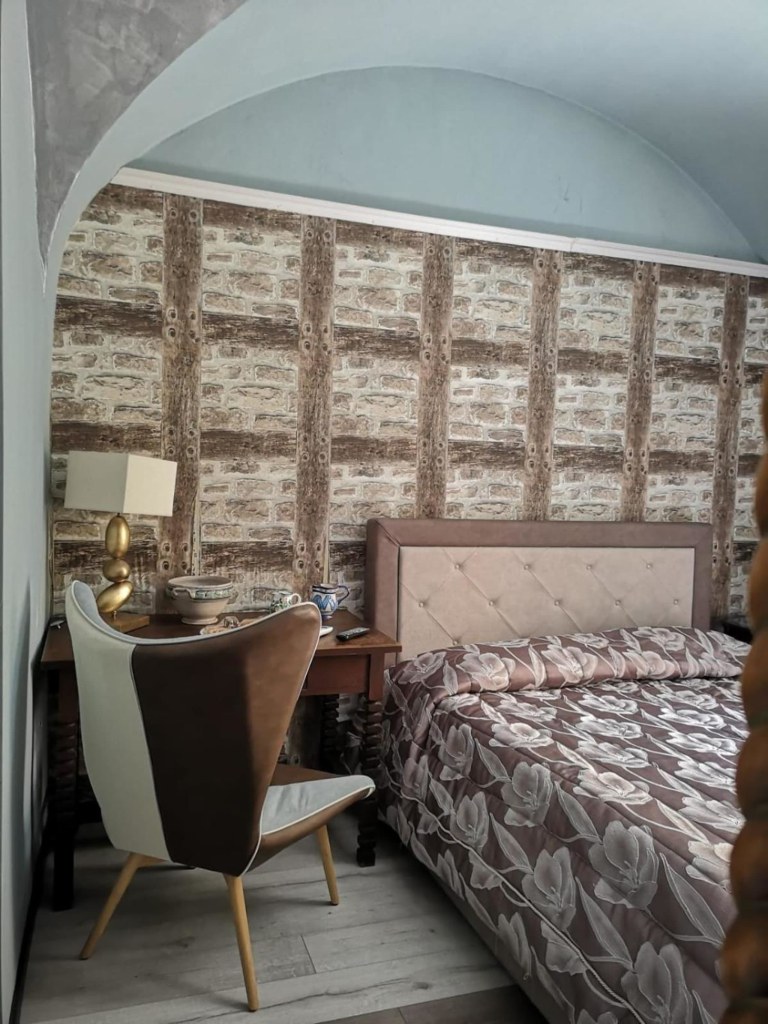Technically co-sponsored by


Call for Papers
We invite you to participate in the 33rd edition of WETICE, a leading international forum dedicated to advancing research, fostering collaboration, and sharing innovations in the rapidly evolving landscape of collaborative intelligence and decentralised software systems, bridging AI, Data Science, and Cyber-physical Technologies: software systems that are smart, autonomous, interconnected, and scalable. This conference is a unique opportunity for researchers, practitioners, and industry experts to connect, exchange ideas, and contribute to the future of intelligent, decentralised, and collaborative software systems, pushing the boundaries of AI, Blockchain, IoT, and collaboration tools. WETICE focuses on collaborative methodologies and how they empower various technologies (AI, Blockchain, IoT, etc.) to create new solutions across diverse application domains. WETICE also aims at promoting fruitful discussions on the latest software technology developments, directions, problems, and requirements. The conference includes presentations, keynote sessions, and group discussions.
Proceedings will be submitted for inclusion in IEEE Xplore, Scopus, DBLP, and Google Scholar.
Download and spread this Call for Papers
News
Apr 15th : Registration is now open!
May 31st: New Submission Deadline Extension: June 7th!
May 31st: Keynote Speakers Announced!
June 27th: Anonymous Review completed, results have been notified to authors. Congratulations to all authors of accepted papers! We warmly invite you to revise their paper according to the anonymous reviewers suggestions and sumbit the camera ready version (and copyright transfer form) before the July 11th registration deadline (strict).
Please note that unregistered papers will not be included in the proceedings nor in the conference program.
July 13th: Wetice 2025 Program is out now!
July 23-25th: Wetice 2025 Conference in Catania: check the photo gallery of the event!
Where
University of Catania, at Benedictine Monastery of “San Nicolò” , Piazza Dante, 32 - Catania, Sicily, Italy
When
New extended Submission deadline: May 31st June
7th
Acceptance notification: June 27, 2025
Early registration deadline: July 11th
Camera-ready (and IEEE copyright form) submission deadline: July 11th
Conference: July 23-25, 2025
Last Editions
- WETICE 2024 – Reggio Emilia, Italy
- WETICE 2023 – Paris, France
- WETICE 2021 – Bayonne, France (online)
- WETICE 2020 – Bayonne, France (online)
- WETICE 2019 – Capri, Italy
- WETICE 2018 – Paris, France
- WETICE 2017 – Poznan, Poland
- WETICE 2016 – Paris, France
- WETICE 2015 – Larnaca, Cyprus
- WETICE 2014 – Parma, Italy
- WETICE 2013 – Hammamet, Tunisia
Keynotes
Keynote1: Prof.
Angelo Gargantini, UniBG (Italy). July 23rd
Are (formal) models still really useful in software engineering?
Models, which are an abstract mathematical representation of a system, are
generally used in software engineering for several reasons, including, to formally
specify system requirements and share them among stakeholders (e.g., developers,
clients, designers). Their main classical goal is to document the system for future
reference, and to analyze the system to be built in order to find issues as soon as
possible.
Modeling is often associated to a classical waterfall software process model as one of
the first phases of the process. In some approaches, like Model-Driven Engineering,
models are paramount, while in agile processes, models play a margin (if not null) role.
In this talk, we will try to give a conceptual framework able to guide developers to
evaluate how much modeling is necessary in their project. We will consider problems like
model updating and the cost of correcting bugs without models. Furthermore, we will
introduce the idea of reverse modeling, when models are extracted from existing code and
co-modeling when models and code co-evolve together linked in a formal way.
BIO: Angelo Gargantini is full Professor of Computer Engineering at the University
of Bergamo. He graduated in Electronic Engineering from the Polytechnic University of
Milan, 1994 (with 100 laude). He then obtained a PhD in Computer Engineering at the
Politecnico di Milano in 2000 and a PhD in Computer Science at the University of Catania
in 2006. He worked in 1997, 1998 and 2003 as a software engineering researcher at the
Software Engineering group of the Naval Research Laboratory (NRL), Washington DC, USA.
From 2000 to 2004 he worked at the University of Catania. Since 2005 he has been working
at the University of Bergamo. His research interests concern software engineering, in
particular the specification, design, validation, verification and testing of critical
systems, in particular medical software systems. His major contributions include the use
of model checkers for test generation, the use of verification techniques for test
generation and validation and the use of model driven engineering (MDE) applied to
formal methods. Together with the team of the University of Milan, he has developed a
tool set for the Abstract State Machines. He was included in the World's Top 2%
Scientists (ranking of Stanford University in collaboration with Elsevier), both in 2022
and 2023.
Keynote2: Prof.
Giancarlo Ruffo, UniPO (Italy). July 24th
Connected worlds: how networks can help to understand fake news spreading,
urban systems, and more.
Network science has emerged as a powerful and versatile framework for
understanding the complexity of real-world systems, from the viral spread of information
to urban dynamics. In this talk, we will explore how the same network principles can
provide valuable insights on two seemingly unrelated domains: the persistence of urban
segregation patterns and the rapid dissemination of fake news online. Also, network
science can help to understand if fact-checking and urban planning are effective
countermeasures of the drawbacks of a hyper-connected world. Drawing on recent research,
we will examine how networks capture the underlying structure of social and spatial
interactions, enabling predictive modeling, scenario testing, and deeper insights into
systemic behavior. This talk aims to illustrate how network models transcend
disciplinary boundaries and offer a unified language for analyzing diverse complex
systems.
BIO: Giancarlo Ruffo is a Full Professor of Computer Science at the Università del
Piemonte Orientale "A. Avogadro", Italy. He holds a Ph.D. in Computer Science from the
University of Turin, where he began his academic career, first as an Assistant Professor
and later as an Associate Professor. He earned his undergraduate degree from the
University of Catania.
His research spans computational social science, network science, and data science, with
a recent focus on modeling social dynamics such as information diffusion, opinion
mining, and urban segregation. He has extensive experience in data science, data and web
mining, and information visualization, which he applies to uncover patterns and insights
in large-scale, heterogeneous datasets.
Prof. Ruffo has collaborated internationally, including a significant research
experience at Indiana University (USA), Universidad de Desarollo (Chile), where he
contributed to foundational work in computational social science and network analysis.
His work bridges theoretical modeling with practical applications, demonstrating the
power of networks to interpret diverse socio-technical systems across both online and
offline contexts.
Topics
Conference topics include, but are not limited to:
-
Collaboration
Intelligent Manufacturing Platforms
Cloud Computing for Collaboration
Collaboration in Digital Strategies
Collaborative Supply Chain Management
Copyright protection in Collaborative Process
-
Data and its Science
Complex networks science
Network visualisation and analytics
Social media analysis
Computational social science
Distributed Database Technologies
Data Analytics and Fraud Detection
Data Privacy, Anonymity, and Confidentiality
-
Distributed Systems Theory
Consensus and Fault Tolerance Algorithms
Decentralized Autonomous Organization
Distributed Cryptographic Algorithms and Protocols
Formal Verification and Model Checking
-
Distributed Systems Infrastructure
Blockchain-based Applications and Services
Blockchain Platforms and Smart Contracts
Decentralized Application Development
Peer-to-peer communication protocols and systems
Performance and Scalability Issues
-
Internet of Things and Cyberphysical Systems
Performance and Safety of Autonomous Agents Systems
Internet of Things Enabled Collaboration
Distributed Platforms for IoT
-
Systems Engineering
Architecture, Scalability, Governance, and Interoperability
Functional validation and conformance testing
System Monitoring and Analysis
Model-based testing and Combinatorial testing
-
Artificial Intelligence tools for collaborative systems
Natural Language Processing
Computer Vision
Reinforcement Learning
Explainable AI (XAI)
Generative Adversarial Networks (GANs)
-
Applications and Case Studies
Healthcare Systems
Human-Robot Collaboration
Intelligent Manufacturing Platforms
Regulatory and standards frameworks
Smart Energy Systems
AI in Healthcare
AI for Social Good
Robotics and AI
Autonomous vehicles
Submission Instructions
Full Paper only (4-6 pages)
Papers must be submitted as word or pdf files, must be written in English and formatted in according to the IEEE conference paper templates available at the following link: IEEE templates.
The maximum length of the paper is 6 pages, including figures and references. Authors are required to include their names and affiliations in their papers. All papers will be refereed by at least two members of the Program Committee. The submissions must be original not published or submitted for publication elsewhere. All papers should be submitted via the following URL: https://cmt3.research.microsoft.com/WETICE2025.
- Paper Submission
New Extended Deadline:
May 31stJune 7th - Acceptance Notification: June 27th
- Camera-ready and copyright transfer form Submission deadline: July 11th (strict)
- Early Registration Deadline": July 11th
Conference Registration
Registration Form
Registration is mandatory for all attendants, and covers all activities. For each paper accepted at WETICE 2025, at least one of the authors is required to pay a full registration to the conference and come to present the paper.Authors who register for more than one paper need to pay 150 euros for each additional paper. Authors are requested to register before the early registration deadline (July 11th AoE). Payments must be made in euros by bank transfer, writing your name and surname followed by "WETICE2025" in the reason for payment and using the following bank details:
Bank: Banca Monte dei Paschi di Siena
Address: Viale Vittorio Veneto n. 98, Catania – AGENZIA SEDE
IBAN: IT 64 I 01030 16900 000063633612
BIC/SWIFT Code: PASCITMMCAT
A proof of payment is required in order to register. The conference registration form is available at this site.
Registration Fees
Early registration (before July 11th AoE)For each additional paper: 150€
Without papers: 350€
Students, withouth paper (i.e., if they are not the only registering author): €300 euros
Late registration (after July 11th AoE)
Students: €350 euros
IEEE Members
IEEE members benefit a 50 € reduction on all early registration fees:Early registration (before July 11th AoE)
For each additional paper: 100€
Without papers: 300€
Students, withouth paper (i.e., if they are not the only registering author): €250 euros
Late registration (after July 11th AoE)
Students: €300 euros
Conference Program
Registration desk opens
Sala del "coro di notte", Monastero dei Benedettini
Welcome and opening remarks
by the WETICE 2025 organizing Committee
Keynote Speaker Presentation
Angelo Gargantini, University of Bergamo, Italy
Are (formal) models still really useful in software engineering?
Coffee Break
Technical Session 1 (Chair: Alireza Rahimi)
Hussaini Idris (University of Modena e Reggio Emilia); Giacomo Cabri* (University of Modena e Reggio Emilia)
Sustainable Mobility Through Intelligent Traffic Signals: A Reinforcement Learning Approach to Emission Reduction and Vehicle Prioritization
Nicolas Evain (Université de Pau et des Pays de l'Adour)*; Ernesto Expositio (Université de Pau et des Pays de l'Adour); Mamadou Lamine Gueye (Université de Pau et des Pays de l'Adour); Philippe Arnould (Université de Pau et des Pays de l'Adour)
Autonomic Cyber-Physical System for Teaching and Learning Process Engineering
Antonella Di Stefano (University of Catania); Alessandro Genovese (UniCT); Massimo Gollo (UniCT); Giovanni Morana (University of Catania)*
Latency-Constrained Overlay Networks for QoS Assurance in the Edge-Cloud Continuum
Social Event
Guided Tour of the Benedictine Monastery (about 1h)
Technical Session 2 (Chair: Umberto Villano)
Lorenzo Lamazzi (University of Modena and Reggio Emilia); Francesco Franco (University of Modena and Reggio Emilia)*; Luca Bedogni (University of Modena and Reggio Emilia); Marco Picone (University of Modena and Reggio Emilia)
Dynamic Machine Learning Models Management for Operator Digital Twins in Industry 5.0
Riccardo Morandi (University of Modena and Reggio Emilia)*; Marco Picone (University of Modena and Reggio Emilia); Nicola Bicocchi (University of Modena and Reggio Emilia)
Real-Time Systems & Digital Twins: Exploring Integration Challenges and Requirements
Fabrizio Amarilli (Dublin City University)*; Sara Uboldi (Intellico.ai); Francesca Saraceni (Intellico.ai); Lorenzo Tencati (Intellico.ai)
Managing Paradoxical Tensions in the Implementation of Explainable AI for Product Innovation
Coffee Break
Technical Session 3 (Chair: Giacomo Cabri)
Mariagrazia Fugini (Politecnico di Milano)*; Gaetano Alessi (POLIMI DEIB)
Real-Time Fraud Detection Using Machine Learning
Alireza Rahimi (University of Modena and Reggio Emilia)*; Giacomo Cabri (University of Modena and Reggio Emilia) A Comparative Study of Machine Learning Algorithms for Water Quality Prediction Using SHAP-based Explainability
Mirko Dimartino (Sangiorgi SRL); Flavio Esposito (Saint Louis University); Massimo Gollo (University of Catania); Giovanni Morana (University of Catania)*; Alessandro Sangiorgi (Sangiorgi SRL)
Quantifying Privacy Risk in Online Agreements with COAT: An LLM Approach
Lunch Break
Keynote Speaker presentation
Giancarlo Ruffo, UniUPO (Italy)
Connected worlds: how networks can help to understand fake news spreading, urban systems, and more.
Coffee Break
Technical Session 4 (Chair: Giovanni Morana)
Pasquale Avella (Università degli Studi del Sannio); Carmela Bernardo (Università degli Studi del Sannio); Marta Catillo (Università degli Studi del Sannio); Antonio Pecchia (Università degli Studi del Sannio); Francesco Vasca (Università degli Studi del Sannio); Umberto Villano (Università degli Studi del Sannio)* Topic Modeling for Graph-Based Analysis of Fake News Diffusion
Gloria Tamboroni (Università degli Studi di Parma)*; Stefania Monica (Università degli Studi di Modena e Reggio Emilia); Federico Bergenti (Università degli Studi di Parma)
Some Recent Results on Using Artificial Intelligence in Collaborative Enterprises
Luca Morellini (University of Modena and Reggio Emilia); Angelo Ferrando (University of Modena and Reggio Emilia); Giacomo Cabri (University of Modena and Reggio Emilia)*; Massimo Garuti (Fondazione Democenter-Sipe)Design and Implementation of a Software System for Digital Product Passport
Technical Session 5 (Chair: Francesco Franco)
Daniel Sanchez Ferriz (Université de Pau et des Pays de l'Adour)*; Ernesto Exposito (Université de Pau et des Pays de l'Adour); Christian La Borderie (Université de Pau et des Pays de l'Adour) Event log extraction using Natural Language Processing and text embeddings
Salvatore Calcagno (Università degli Studi di Catania); Erika Scaletta (Università degli Studi di Catania)*; Emiliano Tramontana (Università degli Studi di Catania); Gabriella Verga (Università degli Studi di Catania) YOLO-based Recognition of some Crop Categories from Real-World Aerial Images
Federico Fausto Santoro (University of Catania); Corrado Santoro (University of Catania); Damiano Vincenzo Coppola (University of Catania)*; Giacomo Giovanni Messina (University of Catania); Angelo Spadola (University of Catania); Enrico Sorbello (University of Catania); Alessio Tudisco (University of Catania)
Smart IoT System for Boat Theft Prevention Using LoRaMesh and Edge ML
Coffee Break
Technical Session 6 (Chair: Damiano Coppola)
Claudio Manno (University of Catania)*; Emiliano Tramontana (University of Catania); Gabriele Manno (University of Catania)
Trustworthy Intelligent Autonomous Agents via Blockchain: A Use Case for Electronic Bidding
Francesco Franco (University of Urbino)*; Alessandro Bogliolo (University of Urbino); Sara Montagna (University of Urbino); Luca Bedogni (University of Modena and Reggio Emilia); Stefano Ferretti (University of Bologna)
Decentralized Health Data Management: An IPFS-based Approach and Performance Evaluation
José Ernesto Stelzer Monar (Unicamp)*; Julio Cesar dos Reis (Unicamp); Anderson Rossanez (Unicamp); Andreis Purim (Unicamp)
FlexBoardChain Framework: Democratizing the Deployment of Blockchain-based Applications
Closing remarks and Goodbyes
Conference Venue
University of Catania, at Benedictine Monastery of “San Nicolò"
At 10 minutes walk from the Catania main Cathedral square, the Monastery of San Nicolò l’Arena, the conference is hosted in a late baroque monument built in the 16th century and one of the biggest Benedictine monastery in Europe. It is an example of architectonical integration of different styles through different epochs: you can find a roman house, the cloisters and a roof garden. The monastery is a UNESCO World Heritage Site and hosts a department of the University of Catania.
Catania, Sicily (IT)
Catania has a long and eventful history, having been founded about 2750 years ago in a very fertile area at the foot of the biggest volcano in Europe, Mount Etna. The first Sicilian University and one of the oldest in Italy was founded here in 1434. The city hosts many archeological sites, museums, churches and theatres and is close to several UNESCO World Heritage Sites. Besides the rich history, the magnificient Baroque architecture and the black-lava landscape, Catania is also known for its typical street food and active nightlife.
Directions
From the Airport to the City Centre by bus
Catania-Fontanarossa Airport offers bus services to the city of Catania and other surrounding areas. Bus services tend to be much cheaper than taking a taxi, and many passengers prefer this economical option.The city of Catania is only a few miles away from the airport, and buses leave the airport every roughly 20 minutes to reach the city center and the train station. Buses are available from 04:40 until half past midnight. This bus transport is provided by the AMT 'Alibus' service AMTS lines Catania.
Take note that all bus tickets, once used, should be validated, or stamped. This is usually done by the validating machines near the entrance of the buses. The machine will put a stamp and a date on your ticket to show that it has been used. Passengers of the bus must validate their own tickets, as they are not validated by the driver of the bus.
Subway
Get off in Piazza Stesicoro and walk until reaching the Monastery.Taxi
Radio Taxi Catania: +39 095 8833 | New Taxi Catania: +39 348 9210175.On foot or by car
To reach the conference venue on foot, please refer to the following address: Piazza Dante Alighieri, 32.Accommodation
As a general note, there are several hotels located in the city center of Catania, ranging from luxury to economy class, all within a reasonable distance from the conference venue. Here is a list of some hotels that are conveniently located near the Conference venue:
Committees
General Chair
Program Committee Chairs
Board of Directors
Publicity Chair
Web Chair
Financial Chair
Local Organization co-Chairs
Program Committee
Cristina Baroglio, University of Torino
Emna Belghith, EFEO
Laura Belli, University of Parma
Federico Bergenti, University of Parma
Rodrigo Bonacin, CTI Renato Archer
Ismael Bouassida Rodriguez, University of Sfax
Roberta Calegari, University of Bologna
Cinzia Cappiello, Politecnico di Milano
Marta Catillo, University of Sannio
Antonio Chella, University of Palermo
Luca Davoli, University of Parma
Victoria Degeler, University of Amsterdam
Angelo Ferrando, University of Modena and Reggio Emilia
Mariagrazia Fugini, Politecnico di Milano
Wafa Gabsi, University of Sfax
Angelo Gargantini, University of Bergamo
Nikolaos Georgantas, Inria
Sergio Ilarri, University of Zaragoza
Slim Kallel, University of Sfax
Mehdi Khouja, University of Tunis
Grzegorz Kołaczek, Wroclaw University of Science and Technology
Raida Ktari, Higher institute of computer science and multimedia of Sfax
Sylvain Lefebvre, L@b ISEN
Douglas Macedo, UFSC
Philippe Merle, Inria
Stefania Monica, University of Modena e Reggio Emilia
Francisco Moo-Mena, UADY
Giovanni Morana, University of Catania
Consuelo Nava, University of Valle d'Aosta
Samir Ouchani, CESI LINEACT
Gianluca Quercini, Centrale Supélec
Philippe Roose, University of Pau
Domenico Rosaci, University of Reggio Calabria
Giancarlo Ruffo, University of Piemonte Orientale "A. Avogadro"
Ramon Salvador Valles, Polytechnic University of Catalonia
Corrado Santoro, University of Catania
Federico Fausto Santoro, University of Catania
Giuseppe Maria Luigi Sarne', University of Milan Bicocca
Virginie Thion, University of Rennes
Umair Ul Hassan, University of Galway
Gallery
Check our gallery from the WETICE 2025 event!

















